Learn how to change behavior.
The world's largest collection of resources and data on behavioral science.
Behavior change and behavior design models
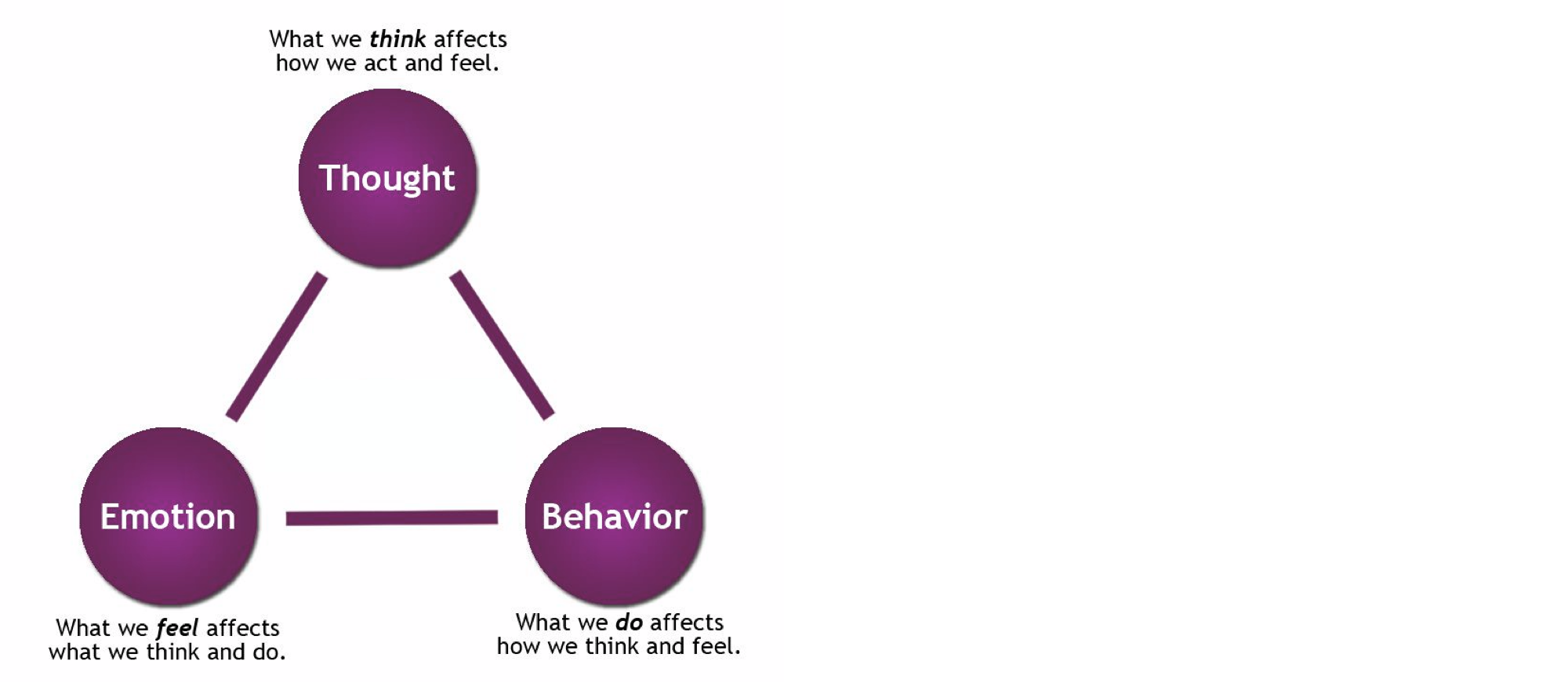
MODELS
Cognitive-Behavioral Therapy
TYPE
Therapeutic approach
PEOPLE
Aaron Beck
PRODUCTS USING
NASH, Sleepio, Learn to Live, Ieso Digital Health, myStrength, MoodHacker, Sanvello, UpLift, TAO Connect, Stoic, wayForward, Daylight, Braive, Youper, MoodMission, MoodKit, MindBeacon, Workit Health, Woebot
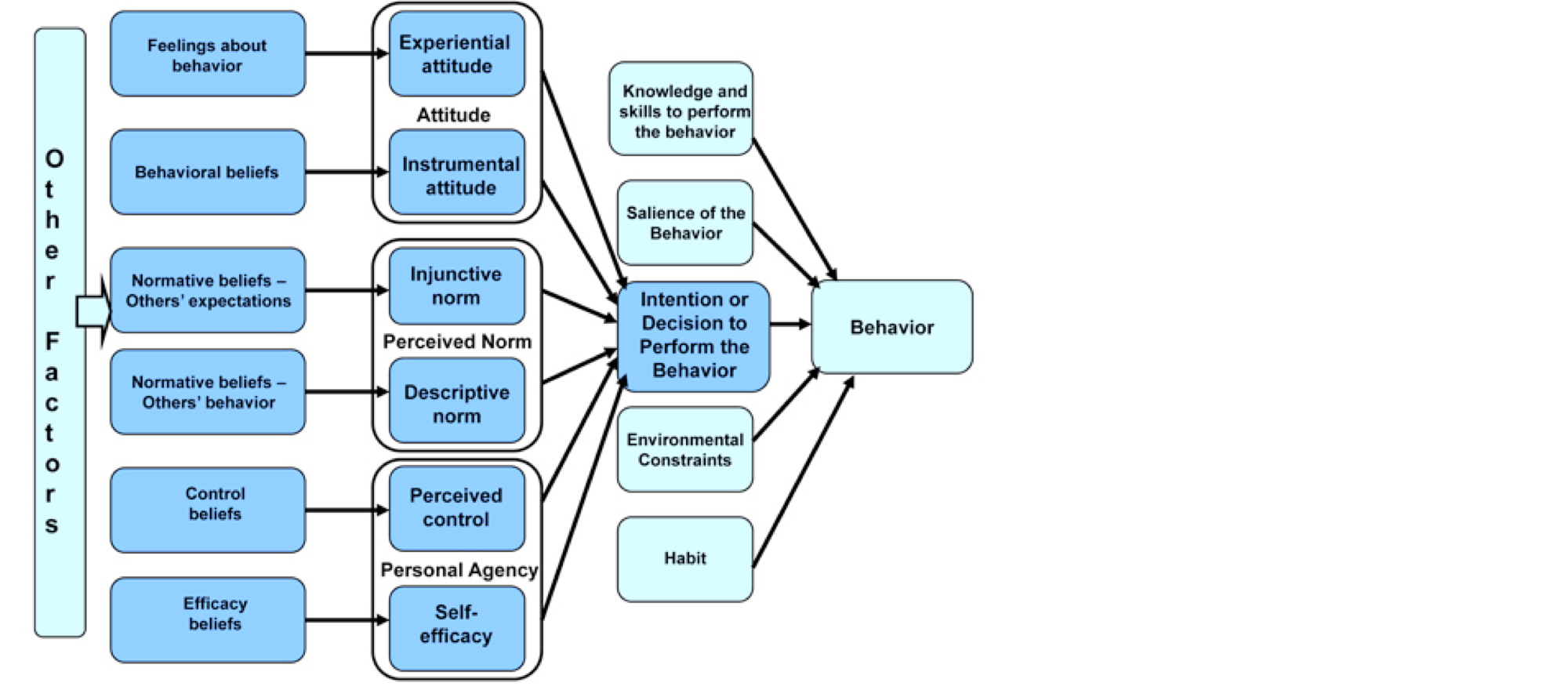
MODELS
Integrated Behavior Model
TYPE
Behavior model
PEOPLE
Martin Fishbein, Icek Ajzen
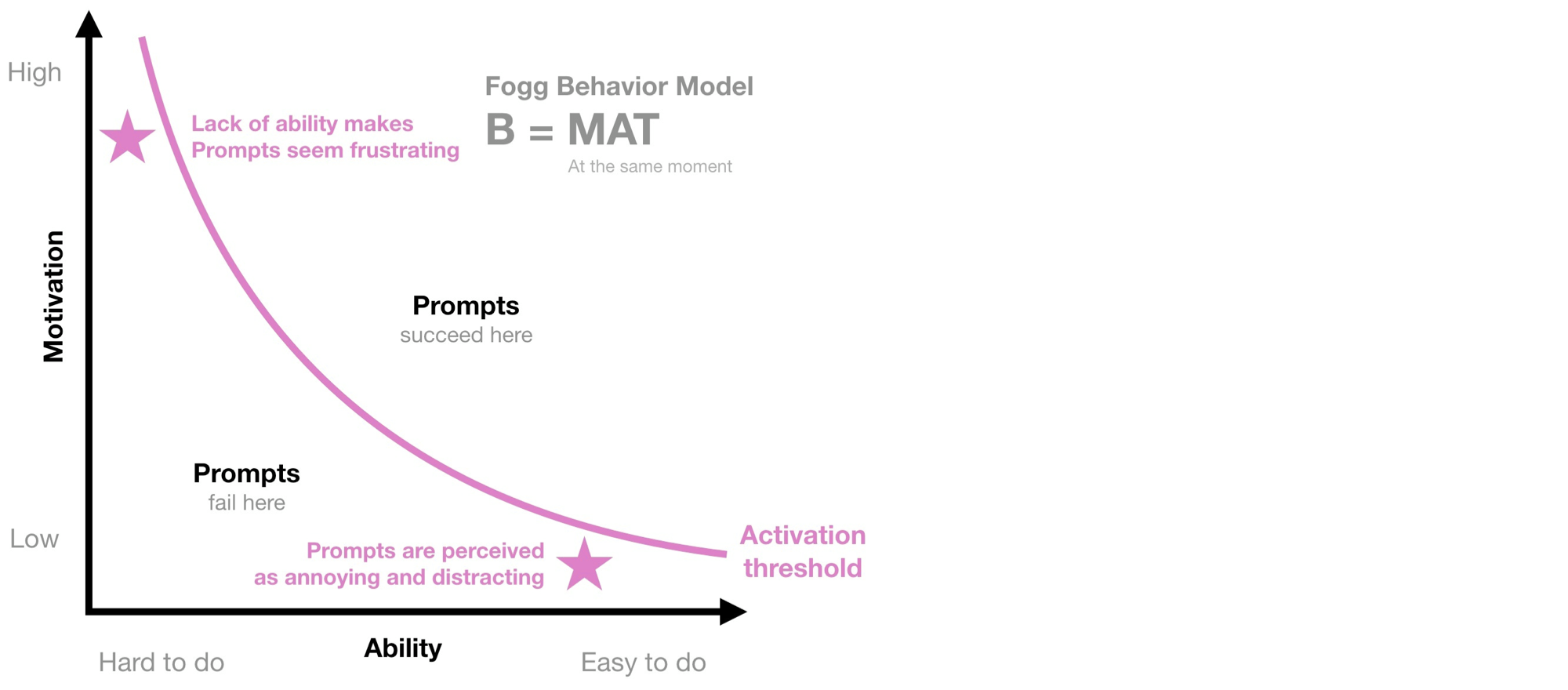
MODELS
Fogg Behavior Model
TYPE
Behavior model
PEOPLE
BJ Fogg
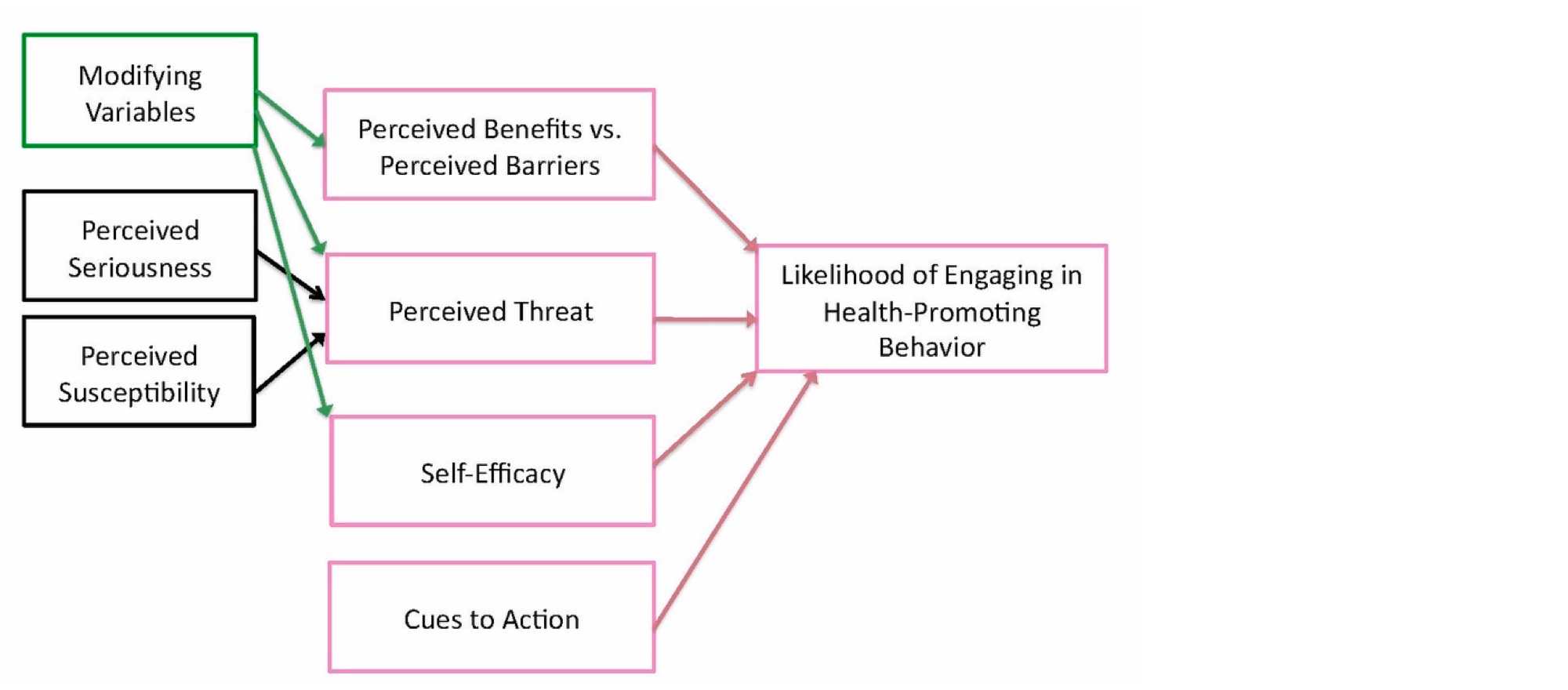
MODELS
Health Belief Model
TYPE
Behavior model
PEOPLE
Irwin Rosenstock, Godfrey Hochbaum, S. Stephen Kegeles
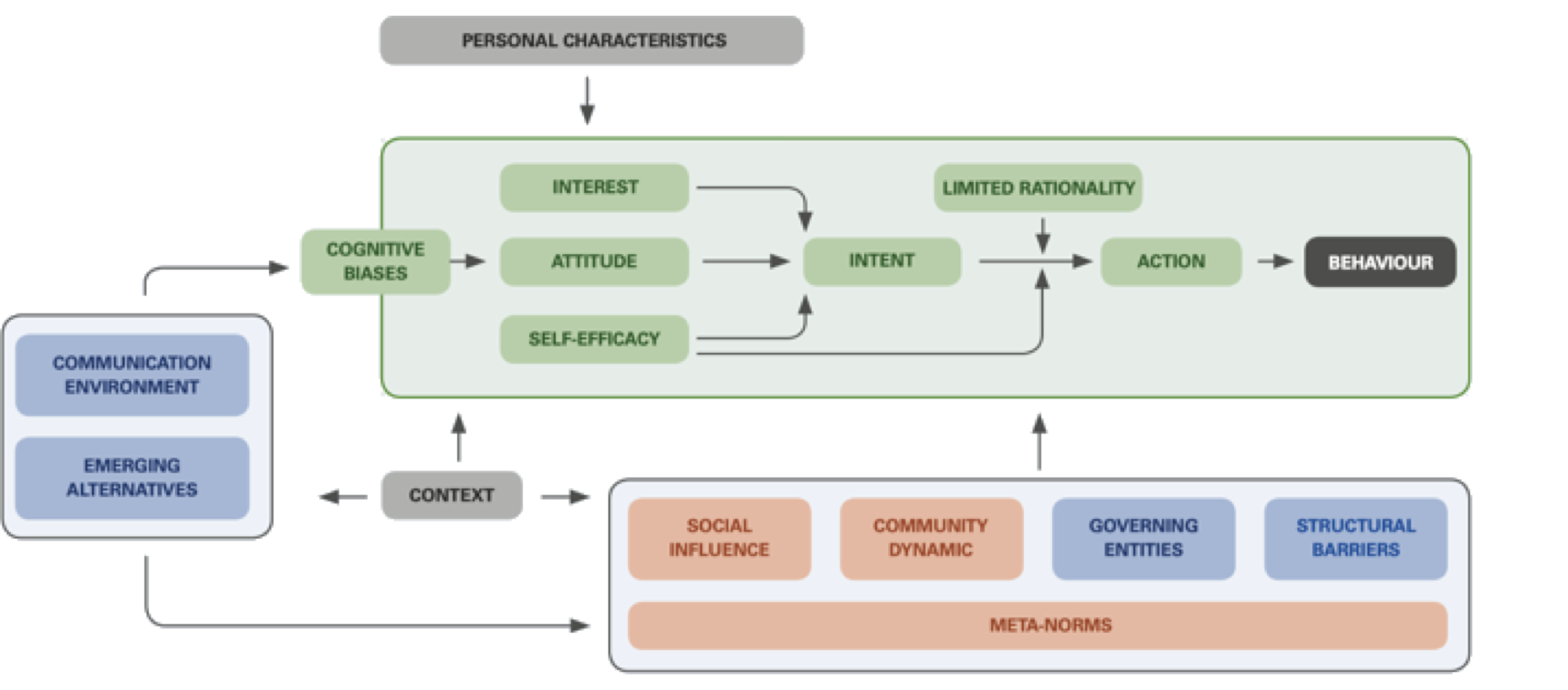
MODELS
Behavioural Drivers Model
TYPE
Behavior model
PEOPLE
Vincent Petit
ORGANIZATION
UNICEF
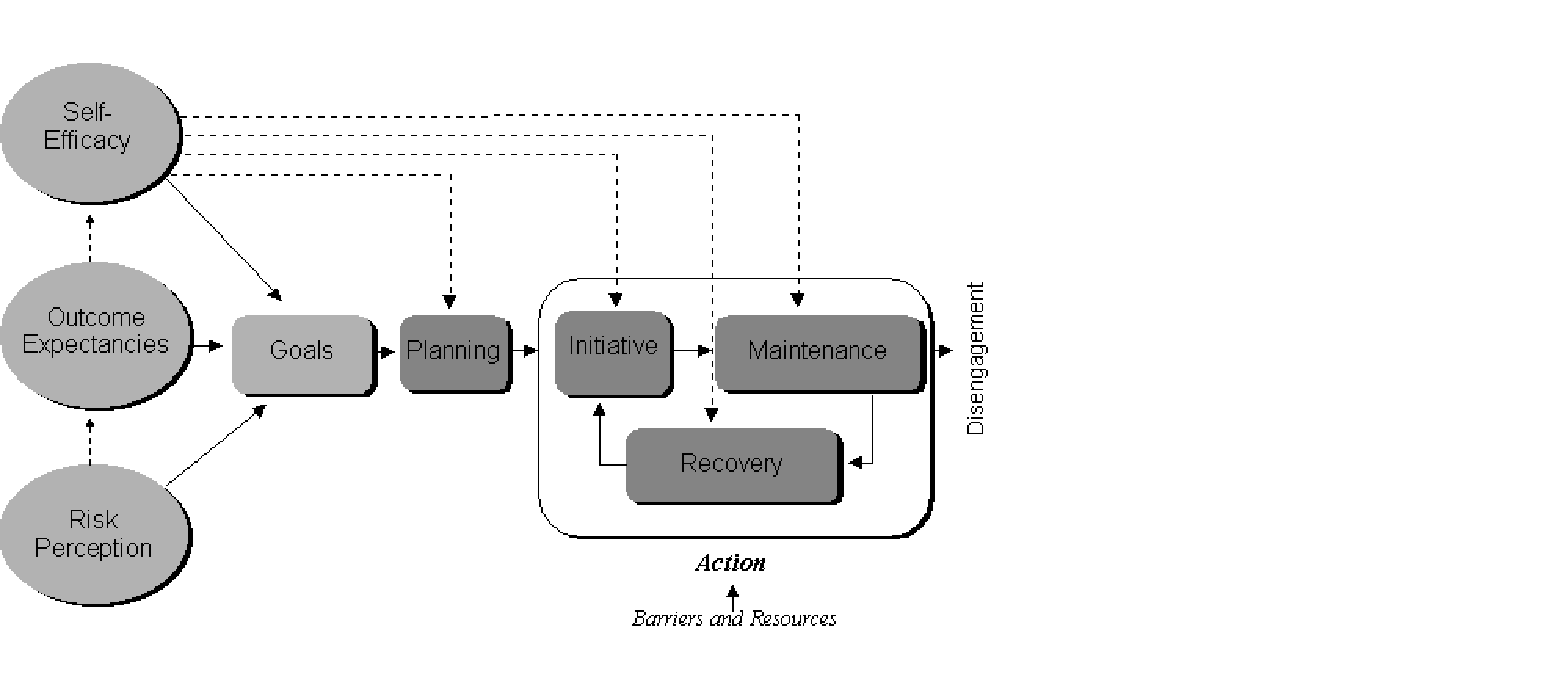
MODELS
Health Action Process Approach
TYPE
Behavior model
PEOPLE
Ralf Schwarzer
Tactics that change behavior

TACTICS
Behavior Substitution
Behavior substitution refers to attempting to eliminate a problematic behavior by replacing it with another one. Often, the substituted behaviors are intended to have similar sensory qualities (e.g. drink flavored sparkling water instead of soda). The goal is typically to disassociate the original behavior from its cue, enabling the more positive behavior to be triggered automatically.

TACTICS
Commitment Devices
Commitment devices are tools that attempt to bridge the gap between a person's initial motivation to perfrom the behavior and the typical pattern of noncompliance as time goes on.One prominent example is the "Ulysses Pact," where Filipino banking customers were offered the option to enroll in an account where their ability to make withdrawals would be limited. In a study by Ashraf and Karlan (2005), participants with the commitment account saved 81% more than those with typical accounts. There are many other examples of commitment devices. Temptation bundling is a form of commitment device where people only engage in an enjoyable activity when it's simultaneous with an activity they intend to do more (for example, only listening to a certain podcast or audiobook while walking on a treadmill). Pre-paying for a service is a basic form of commitment device, and one used by Dan Ariely when he intended to increase his fruit and vegetable consumption. He paid for a year of biweekly deliveries from a local CSA program up-front.

TACTICS
Covert Learning
Covert learning refers to imparting educational information into non-traditional methods of delivery. For example, a film where someone learns cognitive behavioral therapy techniques or receives training on body-weight fitness exercises may teach someone how to do these (or at least generally what they are). People may also learn the consequences of a behavior through watching someone else experience them, and this concept (viarious experience) is a key component of Bandura's social cognitive theory.

TACTICS
Cognitive Behavioral Therapy (CBT)
Cognitive behavioral therapy (CBT) is a therapuetic approach to improving mental and behavioral health. The core philosophy is that behavior can be modified by noticing and correcting patterns in thought that influence the behavior. Modern CBT is typically associated with Albert Ellis and Alan Beck.The structured and rules-based nature of CBT have made it a popular candidate for digital interventions and application by lightly-trained or even untrained practitioners.

TACTICS
Behavioral Economics
Behavioral economics is the exploration of how people make consequential decisions where psychological and sociological factors may influence the outcome or process. It is often considered the fusion of economics and psychology (which itself was an interdisciplinary field entailing medicine and philosophy). The exploration of psychological factors in economic decision-making, including deviation from rationality, traces well back to classical and neoclassical economics (i.e. Gabriel Tarde, Wilfredo Pareto, and John Maynard Keynes) and prior to psychology becoming a formal discipline. Behavioral economics is often associated with behavior change tactics like smart defaults, reducing friction or barriers, increasing salience, incentives, active choice, and commitment devices.

TACTICS
Clawback Incentives
Clawback incentives refer to a framing effect applied to rewards where participants are intended to experience losing the reward via noncompliance rather than accruing it for successful performance of the behavior.For example, a hypertension management program may credit its participants $200 at the beginning of the month, and reduce or "claw back" the amount by $3 each time the patient does not take their medication. The alternative would be starting the month at zero or the previous ballance and adding $3 each time the patient takes the medication.

TACTICS
Coaching or Counselling
Coaching or counselling here refers to having a trained person provide guidance to someone attempting a behavior. Many mental health and lifestyle programs utilize coaching in various forms, including phone calls, video chat, text messaging, or in-person sessions. Some programs have replaced some or all of these traditionally human-delivered touchpoints with AI or rules-based interactions.

TACTICS
Behavioral Activation (BA)
Behavioral activation is a therapeutic approach that typically pairs activity scheduling with either monitoring tools or goal-setting. For example, someone might aim to balance activities they "should" do but underperform, like self-care behaviors, with activities they enjoy. Users of this technique may also track which activities cause certain cognitions or affective states, like those associated with depression.
Products that change behavior

PRODUCTS
Advanced Brain Monitoring

PRODUCTS
2Morrow Stress (and Anxiety) Program
Behaviors
Mental Health & Self-Care
Tactics
Acceptance and Commitment Therapy (ACT), Behavioral Activation (BA)
Models
Acceptance and Commitment Therapy

PRODUCTS
APDS
Behaviors
Crime
Tactics
Social Support, Reminders, Cues +5 more

PRODUCTS
AdhereTech
PRODUCTS
ALICE
Behaviors
Medication Adherence

PRODUCTS
Acorns
Behaviors
Savings
Tactics
Framing Effects, Reduce Friction or Barriers, Automation +2 more
PRODUCTS
2Morrow Smoking Cessation Program
Behaviors
Smoking Cessation
Tactics
Acceptance and Commitment Therapy (ACT), Behavioral Activation (BA)
Models
ACT
PRODUCTS
2Morrow Weight Management Program
Behaviors
Diet & Nutrition, Physical Activity
Tactics
Acceptance and Commitment Therapy (ACT), Behavioral Activation (BA)
Models
Acceptance and Commitment Therapy
Research on behavior change
PAPERS
Interrupting pathways to sepsis: Effectiveness of an intervention to reduce delays in timely care for sick children in rural Bangladesh.
BEHAVIOR
Other
PAPERS
Randomized Controlled Pilot Study Testing Use of Smartphone Technology for Obesity Treatment
PRODUCT
Lose It!
BEHAVIOR
Physical Activity, Diet & Nutrition
TACTICS
Education or Information, Reminders, Cues, & Triggers, Self-Monitoring or Tracking, Social Support, Feedback
PAPERS
Enhancing the effectiveness of community stroke risk screening: a randomized controlled trial.
BEHAVIOR
Other
PAPERS
The PULSE (Prevention Using LifeStyle Education) trial protocol: a randomised controlled trial of a Type 2 Diabetes Prevention programme for men.
BEHAVIOR
Physical Activity, Diet & Nutrition
PAPERS
Value-Based Insurance Design Improves Medication Adherence Without An Increase In Total Health Care Spending
PAPERS
The program for rheumatic independent self-management: a pilot evaluation.
BEHAVIOR
Physical Activity
PAPERS
A Digital Diabetes Prevention Program (Transform) for Adults With Prediabetes: Secondary Analysis
PRODUCT
Transform
BEHAVIOR
Physical Activity, Diet & Nutrition
PAPERS
Designing prenatal care messages for low-income Mexican women.
BEHAVIOR
Other
TACTICS
Education or Information
PAPERS
The Effectiveness of Prompts to Promote Engagement With Digital Interventions: A Systematic Review.
BEHAVIOR
Other